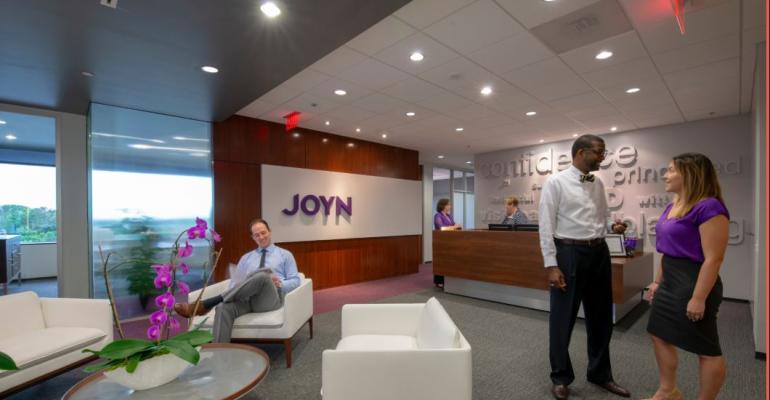In 2018, Jarrett Oakley discovered how ill-equipped his parents were to care for his maternal grandparents. The news hit him as he was sitting in on a JOYN Advisors’ Seasons of Care workshop, a program that JOYN created to educate and assist the Atlanta, Ga., community about eldercare financial planning.
Oakley started working for the firm that same year. As its marketing director—overseeing community engagement programs among other things—he wanted to experience what Seasons of Care was all about. But it wasn’t all work. Oakley’s grandparents were showing signs of dementia, and in the interim, his family lost his grandfather and Oakley’s grandmother became mute. So, the workshop was, in part, a personal endeavor, too.
During the 90-minute session, Oakley got a reality check about the state of his parents, who were entrenched in caring for his elderly grandmother, as caregivers and how he was underprepared to care for them when his own parents would start to need care.
“My parents were going through this and they were so ill equipped. And they’re still suffering from this,” he said. However, now that Oakley has been running the workshop for well over a year he is still concerned but has a better outlook.
“I understand the absolute importance of planning early,” he said trying to not divulge too much about his family’s personal business. “That the challenge isn’t going away and to mitigate the tolls is to work together as a family.”
JOYN, an independent firm founded in 1991, started Seasons of Care in 2016 after surveying its client base on the most significant and stressful life event that they were making decisions for. The group responded with accounts related to caregiving for aging relatives.
“People have been talking about the costs of long-term care policies for a long time, but those discussions were about people who couldn’t take care of themselves, at all. The focus group said there’s a lot of care needs that happen well before it gets to that point. We focused on it as a way to help our clients,” said David Geller, the CEO and co-founder of JOYN Advisors.
Caregivers, which can be defined as informal or unpaid individuals caring for a relative over the age of 65, spend at least one hour providing care, according to the Bureau of Labor Statistics’ Unpaid Eldercare in the United States 2017-2018 Summary. Care can be helping with grooming, providing transportation, shopping for basic needs, cleaning, socializing and preparing meals. Caregivers who lived with the person they were caring for (6.1 million individuals) spent at least three hours a day. Employed caregivers spent an average of 2.3 hours on weekdays and 3.3 hours on the weekend days.
The study also finds that over 8 million Americans are sandwiched between caring for their children who live at home and caring for their aging relatives. These individuals were less likely to give daily care. Almost half (48%) of them are providing care for a parent. And 82% were employed full time or part time.
“The number of professional caregivers is dwindling so the families are having to shoulder much of the burden. We started building an interactive workshop to touch on the financial difficulty that’s related to that,” said Oakley.
There is an unfortunate shortage of home care workers in the U.S. This shortfall stems largely from changing immigration policies and poor-quality jobs (i.e., low pay, lack of benefits, and emotionally and physically taxing positions) that either deter people from entering the field or cause a high turnover rate. Along with those factors, aging and retiring adults are close to outnumbering the country’s young workforce, the people needed to help fill home care jobs.
See: The Looming Caregiver Crisis and The Retirement Caregiver Crisis
Neither Geller nor Oakley budged on the amount of expenses incurred in the undertaking of upping JOYN’s attention to the whole of eldercare financial planning. However, they did say that a significant amount of time, money and energy went into it.
JOYN’s experiential marketing effort is held every six to eight weeks, about six times a year at its office in Atlanta. Oakley says they typically get around 20 to 30 attendees, who are a mix of clients and the general public. JOYN serves high-net-worth individuals, privately owned businesses and their families. Overall, the program has amassed 250 to 300 attendees, said Oakley. JOYN hasn’t crunched the most recent numbers, yet, on the conversion rate, but Oakley says Seasons of Care is “one of our primary engagement activities with prospective clients.”
The workshop doesn’t focus solely on the financial part of eldercare planning, which incorporates the costs, safeguarding assets, long-term care insurance, cash flow analysis and retirement. Seasons of Care covers the emotional, relational and organizational aspects, as well, according to Oakley. Oakley said JOYN calls in experts in the eldercare planning space such as eldercare lawyers, senior financial advisors, living community managers and clinicians to delve into various topics. Topics surrounding understanding what their loved one wants; how to make decisions as a family; how to navigate conflicts; and how siblings can coordinate care.
“Having your ducks in a row before the crisis happens is so vital [because] the challenges tend to be overwhelming for most people,” said Oakley.
If prospects want more of JOYN’s services, Oakley and Geller say there are behavioral wealth specialists trained in family therapy that are ready to help prospects address their challenges.





